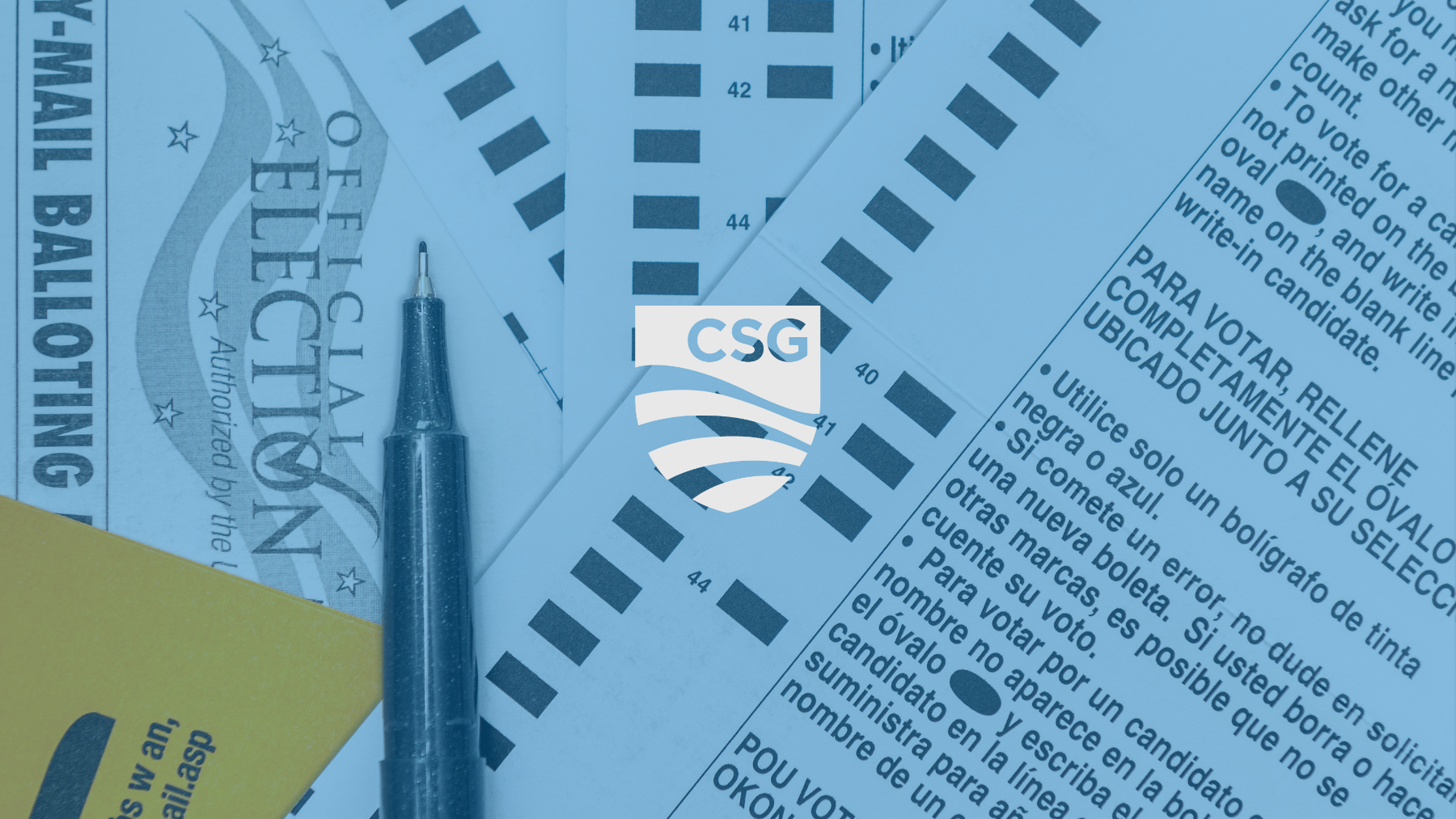State leaders are grappling with a new and exciting tool: artificial intelligence. As policymakers race to regulate the emerging industry, they can look to their fellow legislators and industry experts for guidance. Since 2019, 17 states have enacted 29 bills focused on regulating the design, development and use of AI. These bills primarily address two regulatory concerns: data privacy and accountability.
Continue readingHot Topics in 2024
Each year brings new challenges and innovative solutions for policymakers across the country. CSG experts identified five policy areas set to make a big impact in the coming year, including workforce development and infrastructure revitalization. Learn how CSG can help research and connect leaders with state-focused solutions.
Continue readingIs Daylight Saving Time Worth Saving?
Momentum to eliminate seasonal time changes seemingly faded after receiving House approval in 2022, leaving many Americans wondering if a nationally enacted standard time will ever come. Data suggests more than 60% of the country is in favor of such a move. A growing number of bills addressing the matter have appeared in legislatures across the country in recent years. In 2023 alone, 29 states considered legislation related to daylight saving time.
Continue readingLessons of the Legislature: Constituent Relations
Each year, newly elected state policymakers take on the monumental tasks involved with careers in public service. This year, CSG introduces a four-part series, “Lessons of the Legislature,”
designed to assist new, up-and-coming leaders in their roles. The first part of this four-part series features discussion on constituent relations.
Meeting the Mental Health Needs of the Public Sector Workforce
Public sector workers — including civil service, public health, law enforcement and more — are essential to effective state government, as they provide important services for all residents. However, the weight of this critical work can take a heavy toll on their mental health. To address their needs, policymakers and community partners can increase access to vital supports that help state and local workforces address the unprecedented mental health crisis among government employees.
Continue readingMillions of Veterans Now Eligible for VA Health Care Without First Applying for Benefits
“These veterans will be eligible to enroll directly in VA health care without first applying for VA benefits.” – U.S. Department of Veterans Affairs
The Department of Veterans Affairs has announced a broad expansion of health care eligibility for Veterans and their surviving family members under the PACT Act. Effective as of March 5, 2024, millions of Veterans can enroll in VA health care without first applying for VA benefits. As a result, these Veterans may start receiving health care up to eight years earlier.
Eligibility applies to Veterans as follows:
- Those who served in the Vietnam War, Gulf War, Iraq, or Afghanistan.
- Those who served in any combat zone after 9/11.
- Those who never deployed but were exposed to toxins or hazards while training or on active duty.
Veterans are not required to apply for VA disability compensation benefits in order to enroll in VA health care.
Access and Benefits under PACT Act
The PACT Act was signed into law on August 10, 2022. Since then, more than 795,235 claims have been approved under the PACT Act for over 720,945 Veterans and survivors. The VA reports a 75.2% approval rating for related claims.
How to apply for VA health care
- Apply online at https://www.va.gov/health-care/apply/application/introduction.
- Apply by phone at 877-222-8387 (toll-free; Mon-Fri, 8a-8p).
- Apply by mail (download VA Form 10-10EZ and instructions here).
- Apply in-person at your nearest VA medical center or clinic.
What is a Primary Election and is it the Same Everywhere?
A primary election is an election where political parties choose their candidates for the general election. State law determines whether the primary is a partially open, semi-closed, closed, open to unaffiliated voters, open or top-two election.
Continue readingDEMO: Fancy Map
Private: How Three Communities Are Advancing Systems-Wide Change to Expand Access to Housing
The post Private: How Three Communities Are Advancing Systems-Wide Change to Expand Access to Housing appeared first on CSG Justice Center.
Statewide Ballots Measures: 2023 Recap and Anticipated Trends
An increasing amount of statewide ballot measures have been put to a vote in off-year elections. More than half of the 41 statewide ballot measures proposed in 2023 addressed taxation, public finance, and civil rights, civil liberties and minority issues.
Continue reading








